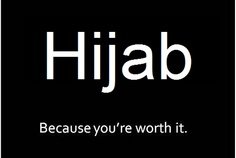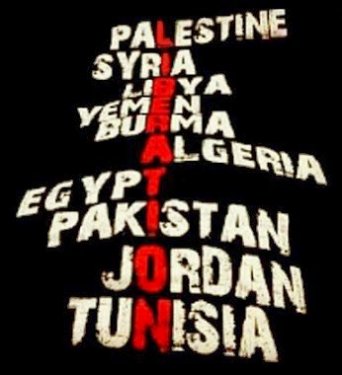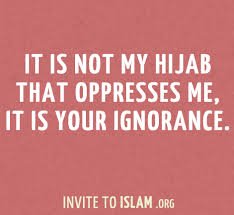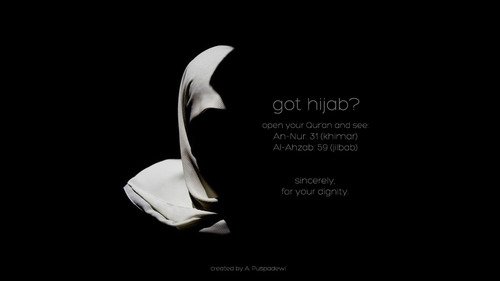-
Posts
8,464 -
Joined
-
Days Won
773
Content Type
Profiles
Forums
Events
Everything posted by ummtaalib
-
Question: I have a problem… In the month of May I started on 8th and finished on 14th. In May I started 28th which means that there wasn’t a 15 day gap of Purity. This means that i am in istihadha. However, I do not know what I have to do. Does this mean i can pray as long as I do my wudhu for each prayer for all the 7 days that I am on for? Or does it mean that I can pray until my 15 days gap have been done and then for the rest of the days i can’t pray? I’m not sure. I need to know… Jzk. Normal days that I’m on for is 7 days! Answered by Umm Yusuf Abdul Sattar Verified by Mufti Abdur Rahman ibn Yusuf In the name of Allah, Most Compassionate, Most Merciful In situations of abnormal bleeding, we use a woman’s previous cycles to help her determine which part of her bleeding is menstruation, which is purity, and which is istihada. Istihada is that blood that a woman experiences that is not menstruation. During istihada, a woman is obligated to complete her ritual obligations, such as fasting and praying. With the information you have provided, we would assign six days as menstruation and eighteen days as purity. The bleeding you experienced from May 8 – 14 will be menstruation. The bleeding you are currently experiencing will be applied toward your normal eighteen days of purity, which will be counted from May 14 – June 1. After completing the allotted purity, you will consider the next six days menstruation. You should continue to apply the pattern of six days blood and eighteen days purity as long as you experience irregular bleeding. Should anything change, you should consult with a scholar, as the rulings are based on a specific set of circumstances. We also recommend keeping a detailed record of bleeding (regular and irregular) and purity, including dates and times. Lastly, the current bleeding is dysfunctional uterine bleeding (istihada), during which you should continue to pray, with a fresh ablution for each prayer time. You can also refer to “The Laws of Menstruation, Postnatal Bleeding & Dysfunctional Uterine Bleeding,” for more information. Feb. 23 – Feb. 27 – 4 Blood 24 Days Tuhr March 23 – 29 – 6 Blood 16 Days Tuhr April 14 – 20 – 6 Blood 18 Days Tuhr May 8 – 14 – 6 Blood 14 Days Tuhr May 28 – Blood 4B, 24T, 6B, 16T, 6B, 18T, 6B, 14T, Blood (Joins) Take 6B, 18T as habit and apply that. So May 8 – May 14 is menstruation. And May 14 – June 1 will be purity. Then take next 6 days as menstruation. Answered by Umm Yusuf Abdul Sattar zamzam academy
-
- 1
-

-
Gift for New Muslims (Basics of Islam) Gift_NewMuslims_Print.pdf
- 1 reply
-
- 1
-

-
Question After almost 1 and a half year I embraced Islam. I just don't like to make dua for my parents during Tashad (due to bad treatment in past from parent). Answer My question is that is it a sin if I stop making dua for them? Bismillahir Rahmanir Raheem Assalaamu alaikum wa rahmatullah May Allah bless you with piety (Taqwa) and purity, strong Imaan,forgiveness of sins, have mercy on you, elevate your status, and bless you with knowledge of Deen and generosity. Ameen! Islam is the religion of Mercy, Peace and Blessing. Its teachings emphasize kind heartedness, help, sympathy, forgiveness, sacrifice, love and care. If we understand it correctly, we will wish it for everyone, including our family and fellow human beings. Kindly review this article http://islameasy.org/K_Islam_Mercy.php Observing Islam and achieving salvation in the eternal life hereafter is an individual’s choice – a personal matter. A Muslim has true love and obedience of Allah Almighty. Since Allah commands good treatment of parents and fellow human beings, A Muslim is also kind to them, for the sake of Allah’s pleasure. There are limits to obedience for anyone if that comes against our obedience to Allah, who is the Creator of everyone! These two aspects are not contradictory, so there should be no confusion. Why do you think practicing Islam is disrespect to parents or Non-Muslims? In the life hereafter, no one will be able to save other person. Everyone is responsible for her own faith and actions. Practicing Islam is not a sin even if one has gone against her parents’ wishes. You will find it truly amazing that the answer comes direct from God, in the Holy Qur’an, Chapter 31, Verses 14-15 14. And We have enjoined on man (to be dutiful and good) to his parents. His mother bore him in weakness and hardship upon weakness and hardship, and his weaning is in two years - give thanks to Me and to your parents, unto Me is the final destination. 15. But if they (both) strive with you to make you join in worship with Me others that of which you have no knowledge, then obey them not, but behave with them in the world kindly, and follow the path of him who turns to Me in repentance and in obedience. Then to Me will be your return, and I shall tell you what you used to do. Islam teaches respect, sympathy and tolerance. Kind treatment of parents is a quality of the believer. The Quraan and Ahaadith are replete with orders and advices of being obedient to one's parents. Allah states, "And worship Allah and do not ascribe any partner to Him and be favorable to parents." (Banu Israaeel). The Prophet (Sallallaahu Alayhi Wasallam) said, "Paradise lies under the feet of the mothers." It is clear from the above quotations that one should respect their parents and be favorable to them. The ruling is general. It includes parents who are Muslims as well as non-Muslims. Asma (Radhiallaahu Anha)states that her mother was a non-Muslim and came to visit her, she enquired from the Prophet (Sallallaahu Alayhi Wasallam) if she can enjoin ties with her non-Muslim mother. The Prophet (Sallallaahu Alayhi Wasallam) replied, "Yes". (Bukhari vol.2) Maintaining ties with non-Muslim parents or relatives presents one with an ideal situation to convey the etiquettes of Islam in a practical way. It is also important to point out that in dealing with non-Muslim parents or relatives, one must not compromise in one's Islamic values and principles. It is incorrect to obey anyone against the orders of Allah. Finally, there is no compulsion in religion. Islam is the continuation of the same original message brought by all previous prophets. And Allah knows best. Ask Alimah Forum
-
-
Question: Is it permissible to take photos and videos on holidays etc? Answer: In the Name of Allah, the Most Gracious, the Most Merciful. At the outset, one must know that Islam forbids making pictures of animate beings (i.e. humans and animals). Severe punishments have been mentioned in the ahaadith for making pictures (of animate beings). Consider the following ahaadith: Abdullah Ibn Masood (Radiyallaahu Anhu) narrates that the Messenger (sallallaahu alaihi wa sallam) said, “The people who will receive the worst punishment in the sight of Allah will be those who make pictures.” (Bukhari and Muslim) Aisha (Radiyallaahu Anha) narrates that once the Messenger (sallallaahu alaihi wa sallam) entered (her house) while there was a curtain with pictures in the house. (Upon seeing it) his face changed and he removed the curtain. He then said, “The people who will receive the worst punishment on the day of judgement will be those who make these pictures.” (Bukhari) Ibn Abbas (Radiyallaahu Anhu) narrates that he heard Messenger (sallallaahu alaihi wa sallam) saying, “Everyone who makes pictures will be in Hellfire. A creature will be created for every picture that he made. It (the creature) will then punish him in Hellfire.” (Bukhari and Muslim) Based on the above, it is not permissible to make pictures of animate beings. Regarding taking photos with a camera and taking videos with a camcorder, it is not permissible to do so according to the majority of the scholars, as both of these acts fall under making pictures. Some scholars, however, deem it permissible to take photos with a digital camera provided that the photo is not printed on paper and also to take videos with a camcorder. According to these scholars, capturing an image on a digital camera and capturing video on a camcorder do not fall under making pictures, as these machines do not make/record images, they merely record digital bytes of data (in the case of digital camera) and electronic video signal (in the case of camcorder). Similarly, images and video displayed on a screen do not fall under the definition of pictures as envisaged in the ahaadith according to these scholars. However, printing the digital image on paper is not permissible even according to these scholars, as doing so falls under making pictures. From the two views, the first view (i.e. that it is not permissible to take photos and to capture videos regardless of whether a digital camera/camcorder is used or a non-digital camera/camcorder and regardless of whether the image is printed on paper or merely displayed on screen) is the more precautionary view, especially considering the severe punishment mentioned in the ahaadith. It is also the view of the majority of the scholars of the Indo-Pak subcontinent. The discussion above is in regards to taking pictures and videos of animate beings (humans and animals). As for taking pictures and videos of inanimate objects (such as trees, mountains, buildings, cars, etc.), it is permissible. And Allah knows best. Mufti Faizal Riza Darul Ifta Australia www.mufti-online.net
-
Oops! Its only a dog! True Incident: The incident took place in South Asia. A man was offering salah in his house. He was praying as fast as he could as many of us do. All of a sudden, he heard the door behind him open. Since, someone entered the room, he started making his ruku and sujud longer. Upon completion of the salah, he looked back to see who it was. To his amazement, it was a dog!
-
Just too many Muslims Everywhere! Two men were on a plane on a business trip when a Muslim couple boarded the plane and were seated right in front of them. The two men, eager to have some fun, started talking loudly. "My boss is sending me to Saudi Arabia", the one said, "But I don't want to go...too many Muslims there!" The Muslim couple noticeably heard and grew uncomfortable. The other guy laughed, "Oh, yeah, my boss wanted to send me to Pakistan but I refused...WAY too many Muslims!" Smiling, the first man said, "One time I was in Iran but I HATED the fact that there were so many Muslims!" The couple fidgeted. The other guy responded, "Oh, yeah...you can't go ANYWHERE to get away from them...the last time I was in FRANCE I ran into a bunch of them too!" The first guy was laughing hysterically as he added, "That is why you'll never see me in Indonesia...WAY too many Muslims!" At this, the Muslim man turned around and responded politely, "Why don't you go to Hell?", he asked, "I hear there's not very many Muslims THERE!"
-
Smart Student PUPIL – “Would you punish me for something I didn`t do?” TEACHER – “Of course not.” PUPIL – “Good, because I haven`t done my homework.”
-
Points to assist a Declining Marriage The Hadith questions the manhood of a person who beats his wife up during the day and derives pleasure from her during the night. Good marriages require patience, kindness, humility, sacrifice, empathy, love, understanding, forgiveness, and hard work. Following these basic principles should help any marriage to improve. The essence of them all can be summed up in one sentence: Always treat your spouse the way you would like to be treated. Amidst busy schedules and tasks on the parts of both women and men, Muslim husbands and wives tend to forget the real reasons behind marriage and likewise the rights of each other. Subsequently, they deprive themselves, their mates and their children of the happiness and tranquillity that is the bedrock of a successful family. This unbalanced vision towards a couple’s ideal relationship is bad enough to plunge the family into a situation laden with troubles and worries. Negative Relationship between Husband & Wife Some Muslim spouses relate to each other like adversaries rather than life time partners. The husband assumes the position of dictator, and whatever he says is not law. The wife on the other hand feels that she must squeeze everything she can out of her husband. Some wives do not express their gratitude to their husbands irrespective of how much the man may do for her. Instead they adopt an attitude of ‘never enough’ and make the husband feel like a failure if he does not provide every want and desire their extravagant lifestyles dictate. Some husbands speak very harshly to their wives, humiliate them, and even physically abuse them. Their wives have no voice or opinion in family matters. Moreover certain husbands become so cold and miserly that even the basic expenditure for the house is difficult to come by. Nikah - A divine institution The Nikah bond has been divinely established for the welfare and upkeep of a healthy and progressive community. This divine prescription has been unjustly utilised as a vehicle to perpetrate oppression, deception, humiliation, and abuse. Allah Ta’ala describes marriage very differently in the Noble Quran: ‘And from his signs are, He created for you wives from among yourselves, so that you may live in tranquillity with them, and instilled love and mercy between your (hearts) . . . “(30:21) Head of the Home The position Islam has accorded to the man as the head of the home is a responsibility which will be accounted for, rather than a privilege which should be abused. We are taught to treat our wives well. Rasulullah (sallallahu alayhi wasallam) has reported to have said: ‘The person possessing the most perfect faith is one who has excellent behaviour, and the best among you are those who are best towards their wives" (Mishkat) Be Partners in Decision Making Follow the principle of ‘Shura," (consultation) and make decisions as a family. Implementing this Sunnah within the home increases harmony and love between family members. It will also assist in enhancing trust and loyalty between spouses and the children. Abuse Abstain totally from every form of emotional, mental, or physical abuse to your spouse. Watch Your Words Be very careful what you say when you are upset. The wounds afflicted to the heart of a person by words will never heal and remain a lifelong memory. Sometimes you will say things that you would never say when you were not angry. Apply the directives found in the Hadith for suppression of anger. Work Together in the House Rasulullah (sallallahu alayhi wasallam) consistently assisted his wives with household chores. When Rasulullah (sallallahu alayhi wasallam) did not consider the housework trivial, how can we today obligate our wives to all the house work and much more? Communication is Important Talk to each other, communicate, have a dialogue, but do it respectfully. Husbands and wives need to talk to each other. It is better to deal with problems early and honestly than to let them pile up until they explode. Live Simply Do not envy or cast your gaze towards those spouses who seem to be living a more luxurious life than your family. Be pleased with what you have. The grass will always look greener on the other side. The wealthiest person is the one who has attained contentment of heart. To develop the quality of contentment, look at those people who have less than you, not those who have more. Repeatedly thank Allah Ta’ala for the many blessings in your life. Admit Your Mistakes When you make a mistake, admit it. When your mate makes a mistake, excuse him or her easily. If possible, never sleep angry with each other. Past Problems Everything that has happened is history. Repent for the past and live for the future. Do not focus discussion on the past unless it is something that will make both of you laugh. The Duaa for a blissful marriage: "Allahumma rabana hab lana min azwaajinaa wa zurriyyatina qurrata a-ayun waj-alna lil muttaqeena imaama" (O Allah! grant us such wives and offspring who will be a source of coolness for our eyes, and make us leaders of the Allah-Fearing) Islaaminfo
-
-
-
AishaZaynap, sorry but I had to delete the other two posts because of the faces though the messages were very good....and I also uploaded the picture so it does not disappear....and i wonder why your posts needed approving, inshaAllah will get it checked
-
-
-
-
-
-
Split from inspiring stories and moved to Muslimah section
-
A Lesson of Faith Bismillahir Rahmaanir Raheem This is a true story: In France, after picking groceries in the supermarket, a Niqabi sister stood in the line to pay. After a few minutes, her turn came up at the checkout counter. The checkout girl was a non-Hijaabi Muslim girl, who began to scan the items of the Niqabi sister, one by one. After a while, she looked at her with arrogance and said: “We have many problems in this country and your Niqab (Face-veil) is one of them! We, immigrants, are here for trade and not to show our Deen or history! If you want to practice your Deen and wear Niqaab, then go back to your Arab country and do whatever you want!" The chaste Niqabi sister stopped putting her groceries in the bag and lifted up her Niqaab… The checkout girl was in total shock. The Niqabi girl, who was blonde with blue eyes, told her: "I am French, from pure French descent, not an Arab immigrant. This is my country and THIS IS MY ISLAM. You born Muslims sold your Deen and we bought it from you!" ________________________ Allah Ta’ala says: “…AND IF YOU TURN AWAY, HE WILL REPLACE YOU WITH ANOTHER PEOPLE; THEN THEY WILL NOT BE THE LIKES OF YOU.” [sURAH MUHAMMAD 47 : 38] gemsofguidance
- 1 reply
-
- 1
-

-
Remember them in your Duas And for our brothers and sisters suffering in And anywhere else in the world. gemsofguidance
-
-
-
-
To completely trust in Allah is to be like a child who knows deeply That even if he does not call for the mother The mother is totally aware of his condition And is looking after him ~ Al Ghazali~
-
Nourish your patience with worship, and nourish your certainty with your connection to Allah and nourish your sincerity with pure dedication and reliance upon Allah. idealwoman.org














